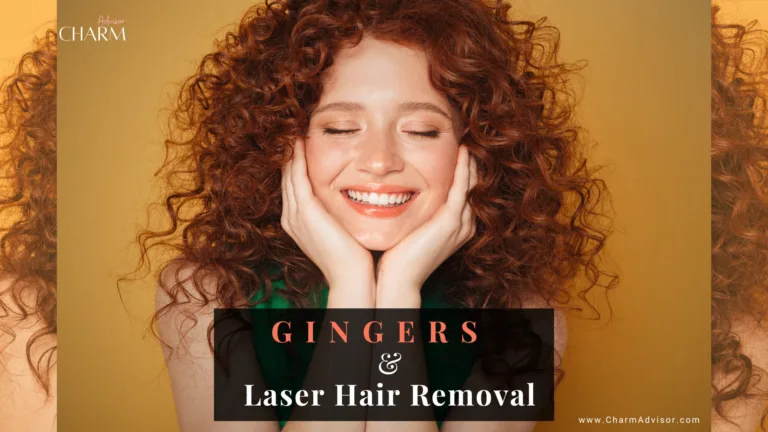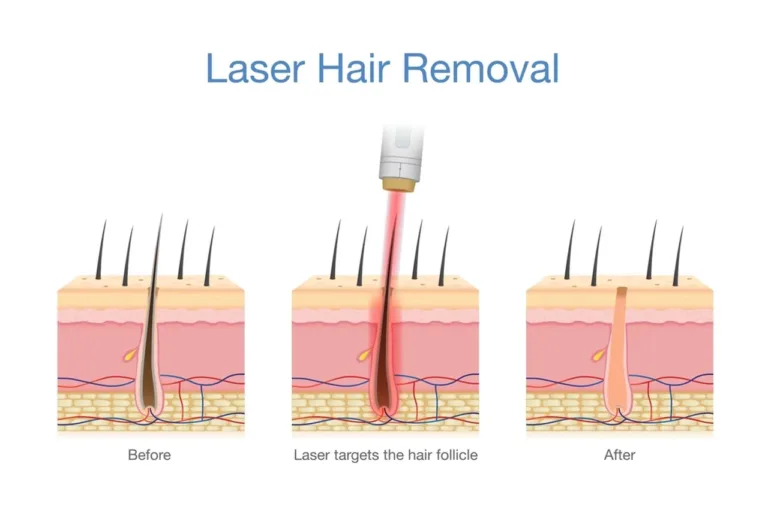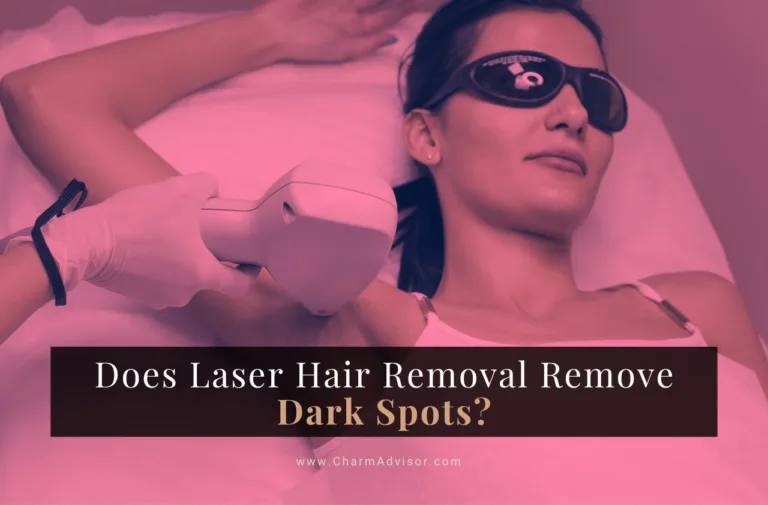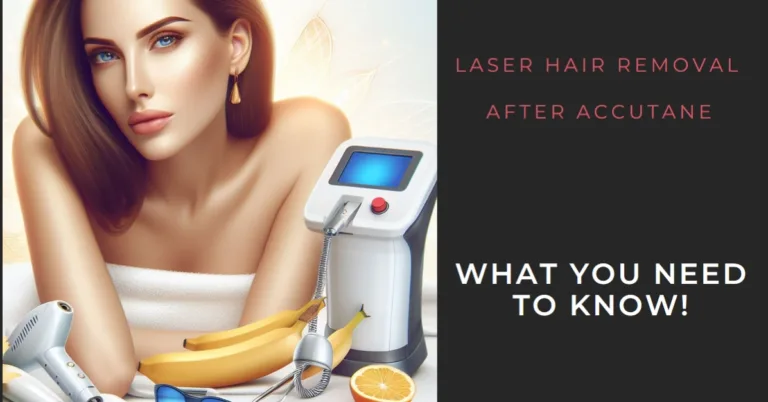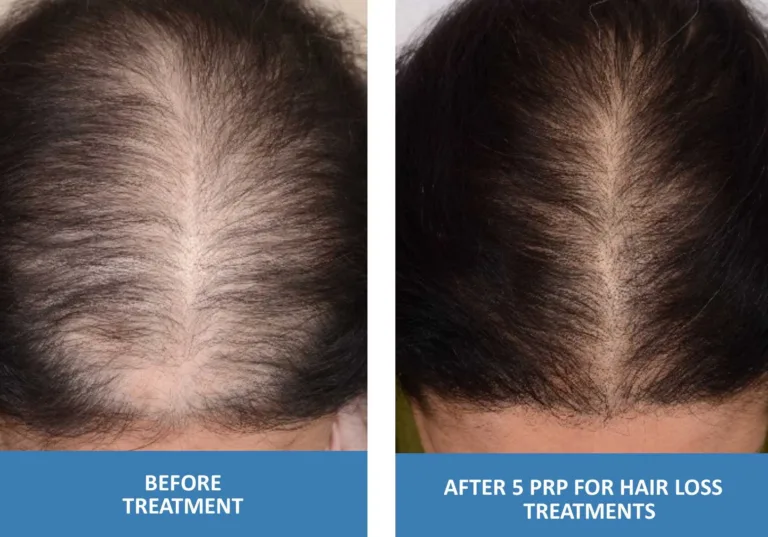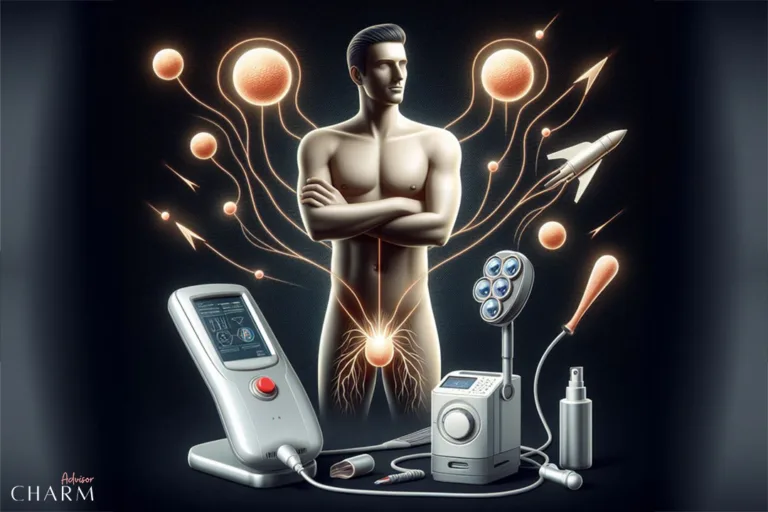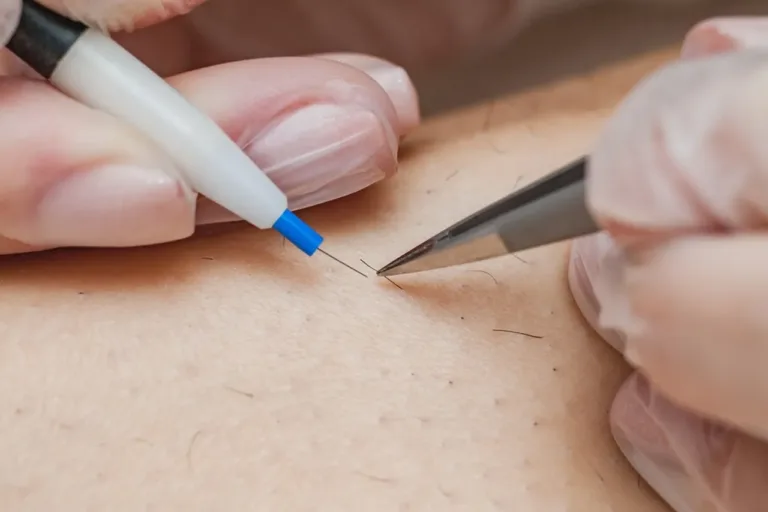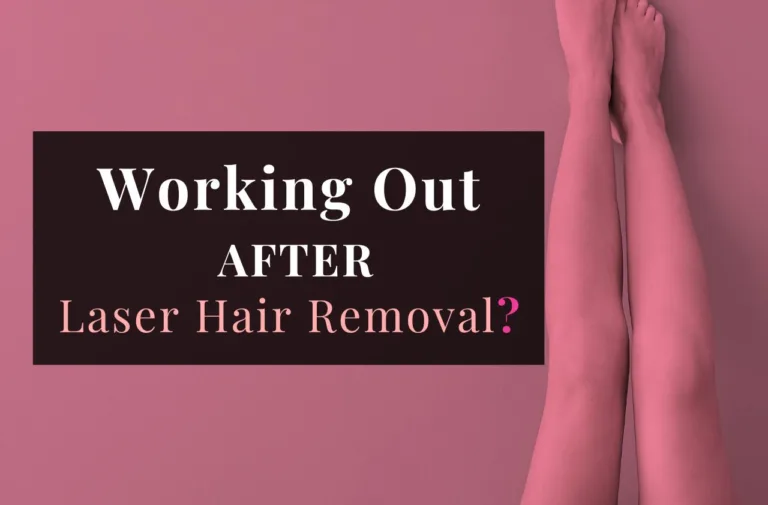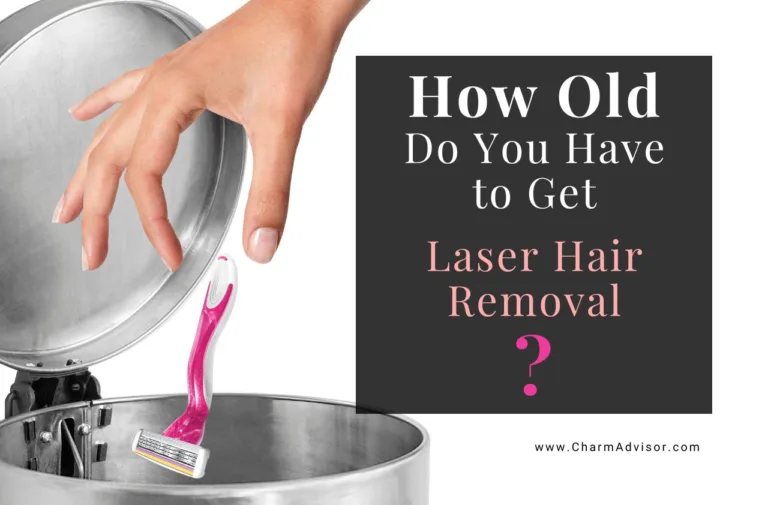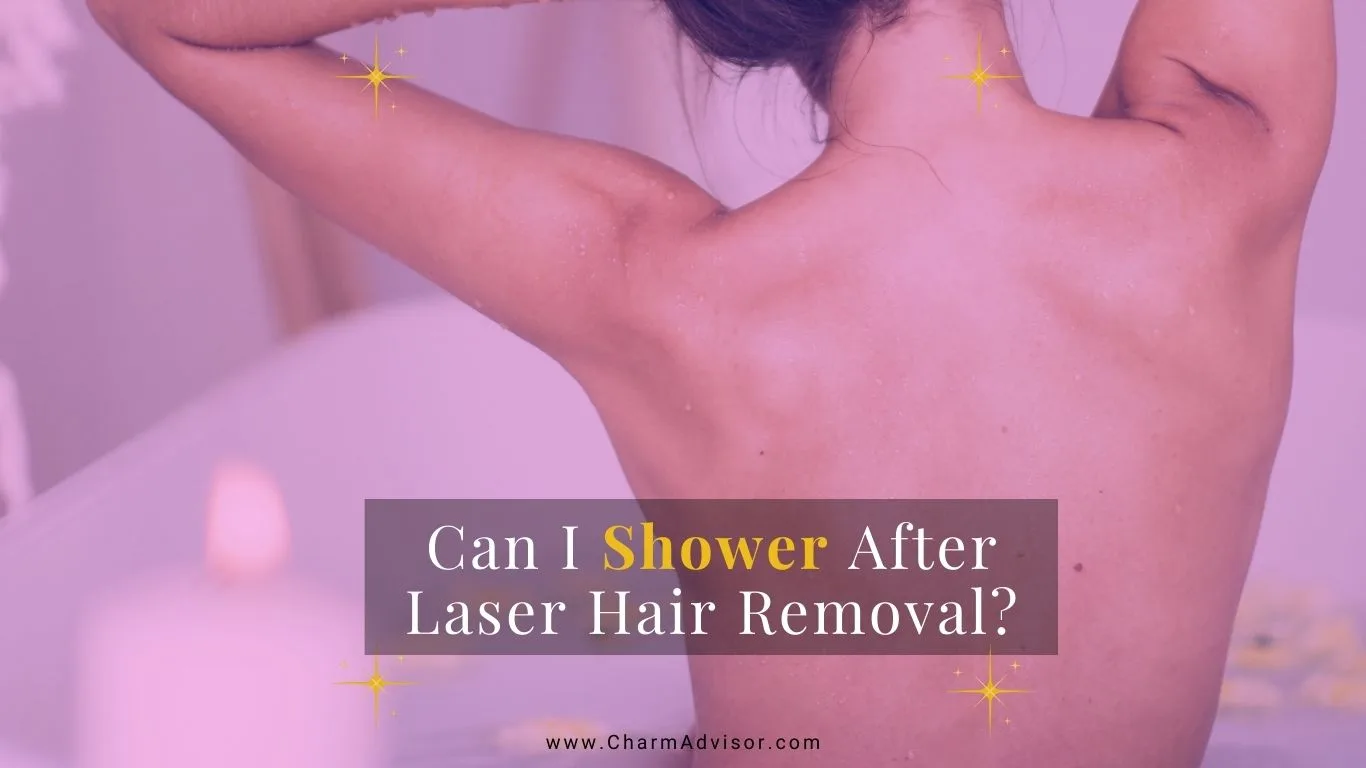
Laser hair removal has become one of the most popular methods for getting rid of unwanted body and facial hair. This treatment uses highly focused beams of laser light to target and damage the hair follicles, preventing them from producing hair.
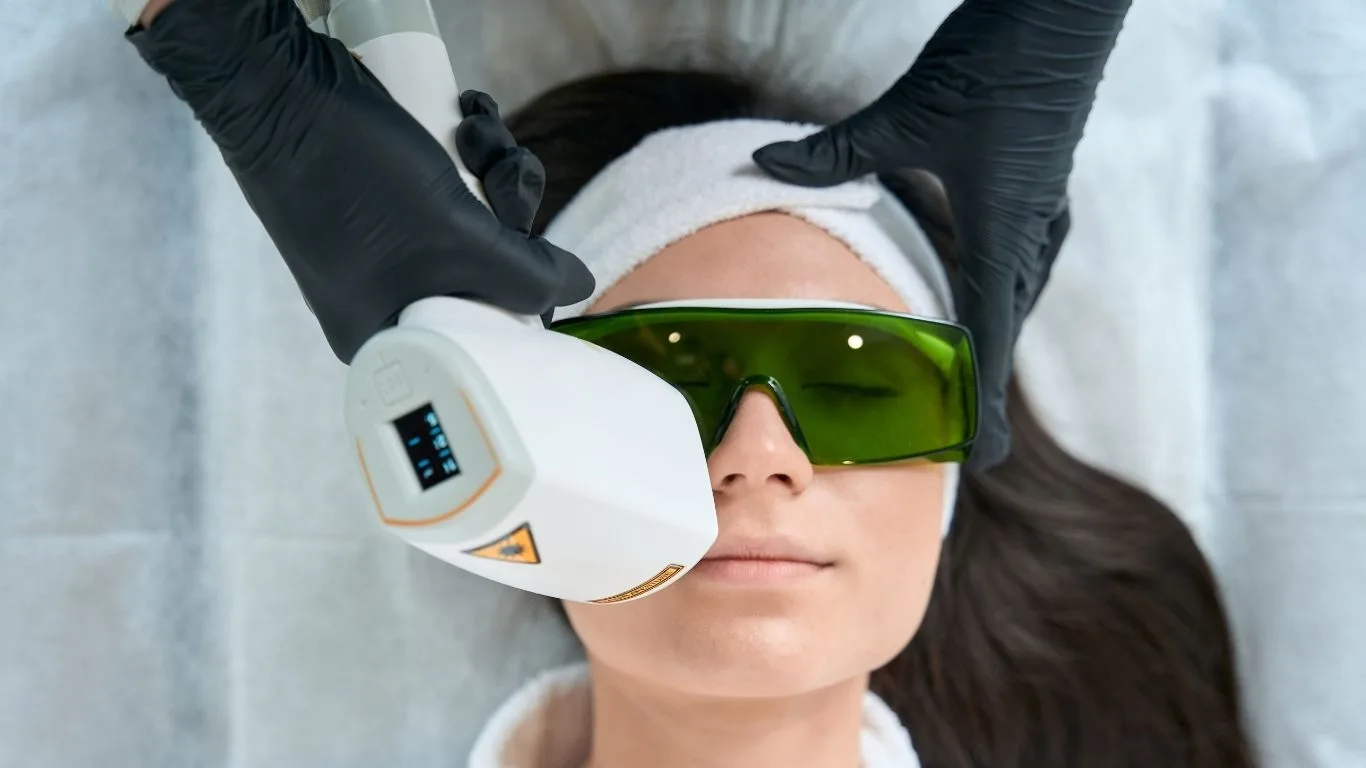
While laser hair removal can be highly effective for permanent hair reduction, proper aftercare is crucial for healing, avoiding complications and optimizing results. One of the most common questions is when can I shower after laser hair removal?
In this comprehensive guide, we’ll discuss:
How Does Laser Hair Removal Work?
Laser hair removal devices use selective photothermolysis technology to target and damage hair follicles. The device emits a highly focused beam of laser light that is attracted to the pigment in the hair.
The laser wavelength used is specifically absorbed by the melanin in the hair shaft and follicle. This laser energy gets converted to heat, which damages and destroys the follicle structure so it can no longer produce hair.
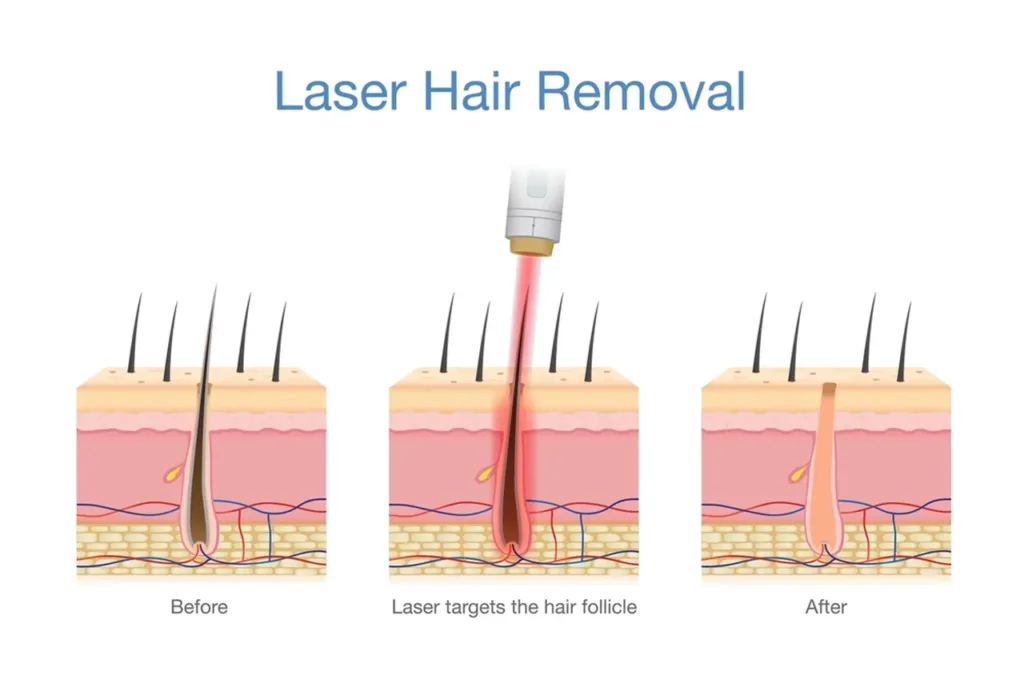
Treatments are typically done in multiple sessions every 4 to 6 weeks. This allows time for new hair follicles to enter the right growth phase to be susceptible to the laser. With continued treatments, laser can cause permanent hair reduction in most people.
Some of the most common areas treated with laser hair removal include the legs, underarms, bikini line, upper lip, chin and back. The number of sessions needed depends on your hair color and skin tone. Light colored hair requires more treatments.
How Laser Hair Removal Works: The Ultimate Guide to Smooth Skin
Why You Should Avoid Showering Right After
It’s highly recommended to avoid showering, bathing, swimming, hot tubs or other water exposure for at least 24 hours after laser hair removal. There are a few reasons why:
1. Prevent Infection
Your skin has microscopic open wounds from the laser treatment. Exposure to water can introduce bacteria and raise the risk of infections. Keeping your skin dry helps it heal cleanly.
2. Avoid Irritation
Showering too soon can irritate your sensitive post-treatment skin. The heat, steam and pressure from water can cause stinging, redness and swelling.
3. Protect Treated Areas
When your pores are open after laser, they are more vulnerable to irritation. Hot shower water and steam can exacerbate inflammation of the hair follicles. This can hamper results.
4. Reduce Discomfort
Most people feel some soreness or tenderness after laser hair removal. Showering too soon can exacerbate this discomfort. Give your skin time to recover before exposing it to water.
5. Prevent Heat Exposure
Heating up your skin soon after laser can trigger inflammation. This includes hot baths, saunas and hot tubs. Even room temperature shower water may be too warm.
6. Avoid Loose Hairs
Showering can dislodge already loosened hairs, removing them before they naturally shed. It’s best to let them fall out on their own.
Waiting at least a day before getting your treated areas wet allows your skin to heal and protects the results of your laser session.
Laser Aftercare Dos and Don’ts
| Do this | Never do this |
|---|---|
| Use tepid water for showers. | Expose the skin to hot water or steam. |
| Cleanse gently and pat dry. | Use exfoliating products. |
| Moisturize with mild products. | Scratch or rub the treated area. |
| Wear loose, breathable clothing. | Expose the skin to direct sunlight. |
When Is It Safe to Shower Again?
While 24 hours is the general recommendation, exactly how long to wait before showering after laser hair removal depends on a few factors:
- The size of the treated area – smaller areas like the upper lip recover faster than larger areas like full legs.
- Your skin type and sensitivity – More sensitive skin needs extra time to heal.
- Type of laser used – More powerful laser treatments cause deeper wounds.
- Technician’s recommendations – They can best judge based on settings used.
Many laser technicians advise waiting 12 to 24 hours before showering again. However, some people may need to wait longer such as:
- Up to 48 hours if you got a more aggressive full leg or Brazilian bikini treatment.
- 3 to 5 days if you have extremely sensitive skin that tends to react strongly.
Use your best judgment and wait until your skin feels less tender before showering. Avoid scrubbing or submerging the treated areas. The general rule is to keep the sites dry, clean and protected while healing.
How Long Should You Avoid Bathing After Laser Hair Removal?
Along with showers, it’s best to hold off on:
- Hot baths for 2 to 3 days.
- Swimming or beach trips for 3 to 7 days.
- Hot tubs, saunas, steam rooms for 1 week.
The hot water and steam exposure from these activities can really aggravate your post-treatment skin. Warm, moist environments also increase chances of infections.
Wait until any residual redness and tenderness has resolved before doing any activity that exposes your treated skin to heat, shared water or friction.
What Is the Best Water Temperature for Showering After Laser?
When you are ready to shower again, use lukewarm or cool water instead of your usual hot shower setting. Set your shower to a medium or low temperature. Avoid extremes of hot or cold water:
- Lukewarm water around 85°F to 90°F is ideal. This prevents irritation while still cleaning effectively.
- Cool water around 70°F to 80°F works well for sensitive skin prone to redness and swelling.
- Cold water under 70°F may feel uncomfortable. Cool instead of cold is recommended.
Keep your showers brief, 5 minutes at most. Avoid prolonged exposure. Wash gently with your hands instead of abrasive washcloths, loofahs or brushes.
How to Bathe Properly After Laser Hair Removal
Follow these tips for gentle cleansing and bathing after your treatment:
- Stick to lukewarm or cool water temperatures, avoid hot.
- Take 5 minute quick showers to limit water exposure.
- Use a fragrance-free wash formulated for sensitive skin.
- Cleanse gently with your hands, not scrubbing implements.
- Avoid direct water pressure on treated areas.
- Gently pat dry with a soft, clean towel.
- Moisturize with a mild, fragrance-free lotion or aloe.
- Wear loose, breathable fabrics while healing.
Cleanse using gentle outward motions instead of rubbing harshly over treated areas. Be extra careful when washing over any reddened or irritated spots. Pat dry instead of rubbing vigorously with the towel.
What Skin Care Products Should I Use After Laser Hair Removal?
When cleansing and caring for your skin after laser hair removal, use only very gentle, non-irritating products recommended by your technician. Avoid products containing:
- Perfumes or dyes: These can cause skin reactions.
- Retinoids: Ingredients like retinol increase photosensitivity.
- Acids: Alpha hydroxy acids (AHAs) and beta hydroxy acids (BHAs) can sting.
- Alcohol: This can dry out and irritate skin.
The ideal cleanser is a fragrance-free, dye-free, non-comedogenic (won’t clog pores) gel or liquid. Cetaphil, CeraVe, La Roche Posay and Vanicream make good options.
For moisturizing, aloe vera gel is soothing and promotes healing. A gentle, unscented lotion like Cetaphil or CeraVe works too. Avoid using old products that may be harboring bacteria.
What Should I Wear After Laser Hair Removal?
Wear loose, soft, breathable fabrics against your treated skin while it recovers:
- Lightweight cotton underwear instead of nylon or polyester
- Loose dresses, skirts or pants instead of jeans or leggings
- Breathable shirts or camisoles if you had your underarms lasered
- No tight elastic bands around wrists or ankles
This allows airflow to the area for better healing. Tight clothes can cause friction leading to blisters or scabs. Avoid garments that might stick to scabs. Take care when getting dressed.
Signs of Infection After Laser Hair Removal
While infections are rare with proper aftercare, contact your technician if you notice:
- Increased pain, tenderness, throbbing at treatment site
- Redness spreading beyond treated area
- Red streaks extending from skin
- Yellow/green discharge or pus
- Swollen lymph nodes near site
- Fever, flu-like achiness
Infections may require antibiotic ointments or oral antibiotics from your doctor. Seek medical attention promptly to prevent complications like cellulitis.
What Activities Should I Avoid After Laser Hair Removal?
Along with avoiding showers, baths or water the day of treatment, steer clear of:
- Exercise: Sweating and gym clothes friction can irritate skin.
- Sun exposure: Sun can darken treated areas. Avoid direct sun for 2 weeks.
- Tanning beds: Similar to sun, can prompt side effects.
- Hot tubs/saunas: Heat causes swelling.
- Scrubs/peels: Harsh exfoliation damages healing skin.
- Massage/facials: Too much pressure on treated area.
- Swimming: Shared water raises infection risk.
- Shaving: Wait until area heals fully.
- Waxing/plucking: Can disturb laser damaged follicles.
Take it easy while your skin recovers. Light activity is fine but avoid anything strenuous, especially exercises causing sweat and friction on the treated areas. Wear sunscreen if going out.
What Not to Do After Laser Hair Removal
Avoid these no-nos during the healing process:
- Rub, pick or scratch the treated areas. This includes peeling off scabs.
- Use exfoliating scrubs, loofahs, washcloths or cleansing brushes on the area.
- Apply ice or cooling packs to reduce swelling. This constricts blood vessels.
- Use irritating products with retinoids, acids, astringents, alcohol.
- Wear tight, man-made fabrics that trap heat and sweat.
- Go out into direct sunlight or use tanning beds.
- Submerge the treated areas in baths, pools, beach water.
- Do strenuous exercise and activities causing excessive sweating.
Let your skin heal naturally without aggravating or overheating the treatment sites. Avoid direct sun exposure which can cause hyperpigmentation.
How Long Does Post-Treatment Irritation Last?
It’s normal to have some redness, swelling, tenderness and sensitivity over the lasered spots for a few days. This usually peaks at around 48 hours post-treatment.
With proper aftercare, irritation typically resolves within 3 to 7 days. Using cool compresses, hydrating creams and OTC pain medications can provide relief and speed healing. Avoid picking scabs.
Call your technician if irritation persists beyond a week. Significant pain, oozing, bruising or blistering may indicate an underlying issue needing attention.
Does Laser Hair Removal Damage Skin?
When performed properly by an experienced professional, laser hair removal is very safe for most skin types. It’s normal to have some temporary irritation that heals quickly.
However, improperly used lasers can cause burns, blisters, scars and discoloration. Choosing an expert technician is key, as is following all pre- and post-treatment instructions carefully.
With multiple treatments spaced several weeks apart, laser hair removal can safely and effectively reduce body hair with minimal adverse effects. Take proper care of your skin afterwards to avoid complications.
Can I Still Shave After Laser Hair Removal?
It’s best not to shave or wax the treated areas in between sessions. Removing hairs can disturb follicles already damaged by laser.
Focus on letting any shed hairs naturally fall out instead of pulling them. This allows the disabled follicles time to work their way out. Only shave if excessive shedding bothers you.
Ideally, as you progress through multiple laser sessions, hair reduction will lessen the need to regularly shave the treated areas.
In Conclusion
When can you shower after laser hair removal? For best results and to avoid irritation, wait at least 24 hours before exposing treated skin to water. Avoid hot temperatures, limit showers to 5 minutes, cleanse gently and use moisturizing creams to soothe skin.
Let your technician know if you experience any concerning side effects like spreading redness or discharge. With proper aftercare, laser hair removal is an effective way to safely reduce unwanted body and facial hair.
For more comprehensive guidelines, Dr. Mark Schusterman’s advice on what not to do after laser hair removal is an invaluable resource.
FAQs
-
How long should I wait to shower after laser hair removal?
It’s recommended to wait at least 24 hours before showering.
-
What water temperature is best for showering after laser hair removal?
Lukewarm or cool water is ideal to prevent irritation.
-
Can I use my regular skin care products after laser hair removal?
Opt for gentle, fragrance-free products. Avoid ingredients that might irritate the skin, such as alcohols and acids.

